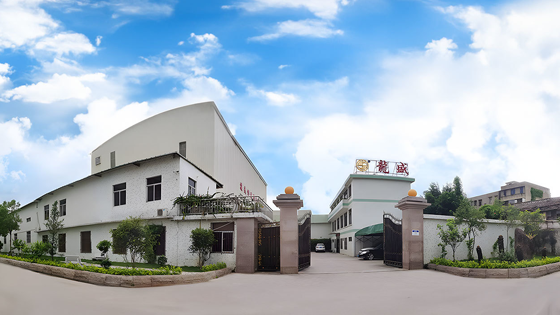Maintenance and maintenance skills of bag-making machines
Release time: 2025-04-21 17:01:07.093
Maintaining and servicing bag-making machines is crucial for ensuring efficient operation, extending service life, and improving product quality. Here are some practical maintenance tips:
Maintaining and servicing bagging machines is crucial for ensuring efficient operation, extending service life, and improving product quality. Here are some practical maintenance tips:
1. Regular Cleaning
Clean the equipment surface: Regularly use a clean cloth or brush to clean dust, dirt, and residue from the equipment surface to prevent interference with normal operation.
Clean the infeed and cutting area: Pay special attention to the infeed channel and cutting area, cleaning any debris that may cause blockages to ensure smooth material flow.
2. Lubrication and Maintenance
Regular lubrication: According to the equipment manual, regularly lubricate moving parts using appropriate lubricating oil or grease to reduce wear.
Check lubrication: Regularly check the working condition of the lubrication system, ensure good lubricating oil quality, and replace it in time.
3. Adjustment and Tightening
Check mechanical parts: Regularly check the tightness of the various mechanical parts of the equipment to ensure that there is no looseness, especially cutting tools, drive belts, and sealing devices.
Maintain equipment alignment: Ensure that all parts of the equipment are aligned to avoid affecting production efficiency and product quality due to misalignment.
4. Regular Inspection
Electrical system inspection: Regularly inspect electrical connections and control panels to ensure that there are no loose or damaged wires.
Safety device testing: Ensure that safety devices and emergency stop buttons are functioning properly to prevent equipment malfunctions from causing safety accidents.
5. Temperature and Pressure Monitoring
Monitor the temperature control system: Regularly check the working condition of the temperature control system to ensure that the temperature sensors and heating elements are functioning properly.
Adjust pressure in time: According to the requirements of different materials, regularly check and adjust the sealing pressure to ensure sealing quality.
6. Maintaining the Cutting Device
Keep blades sharp: Regularly inspect and sharpen cutting tools to ensure sharpness and cutting effectiveness.
Clean the cutting device: Regularly clean the cutting area to prevent material residue from causing blade wear or poor cutting.
7. Monitoring Production Data
Keep maintenance logs: Maintain equipment maintenance logs, recording the content, date, and person in charge of each maintenance for tracking and management.
Analyze fault data: Analyze faults during the production process to promptly identify and resolve potential problems and avoid long-term hidden dangers.
8. Replacing Consumables
Regularly replace worn parts: According to the equipment usage, regularly check and replace worn parts, such as sealing tape and blades, to ensure normal operation.
Pay attention to using genuine products: Purchased and replaced consumables should be genuine products that meet standards to avoid affecting equipment performance due to quality issues.
9. Training Operators
Arrange professional training: Regularly train operators on equipment use and maintenance to ensure they understand the correct operation and maintenance techniques.
Cultivate operational awareness: Improve operators' safety awareness and sense of responsibility to ensure that they can promptly report and handle problems when discovered.
10. Develop a Maintenance Plan
Regular maintenance plan: Develop a detailed regular maintenance plan, setting maintenance time and content, including cleaning, lubrication, inspection, and troubleshooting, to ensure regular implementation.
Reduce downtime: Through a thorough maintenance plan, try to schedule maintenance during non-production time to minimize the impact on the production process.
Related news
The Ultimate Guide to Zipper Pouch Making Machines: Elevate Your Post-Processing Capabilities
The zipper pouch making machine is a specialized piece of equipment designed to efficiently produce zipper pouches, which are widely used in packaging various products, including food, cosmetics, and electronics. These machines are integral to the post-processing sector of the manufacturing industry, particularly within the realm of die-cutting equipment. Understanding the operational principles,
Choosing the Perfect Automatic Irregular Bag Die Cutting Machine for Your Business When it comes to enhancing production efficiency and the quality of your products, selecting the right equipment is crucial. In the realm of **manufacturing and processing machinery**, particularly in the **post-processing segment** where die-cutting machines play a pivotal role, understanding how to choose the perf
Unlocking Efficiency: The Essential Guide to Center Seal Bag Making Machines
Center seal bag making machines are integral to the manufacturing and processing industry, particularly for businesses involved in packaging. These machines are specifically designed to create bags from flat films through a unique sealing process that ensures a tight and secure closure along the center of the bag, making them ideal for a wide range of products, including food, pharmaceuticals, and
The Future of Packaging: Advantages of Self Standing Pouch Machines
The Future of Packaging: Advantages of Self Standing Pouch Machines Introduction to Self Standing Pouch Machines In recent years, the packaging industry has undergone a significant transformation, largely driven by advancements in technology and changing consumer preferences. Among these innovations, **self-standing pouch machines** have emerged as a game-changer. These machines produce flexible p
About Us
Products
Quick Navigation
Contact Us
Shantou yongshun packing machinery Co.,Ltd.
Address: No. 1, Mianhua School Qian Road, Ha Giang District, Shantou City, Guangdong Province
Postcode: 515073
Tel: 86-754-88224688
Fax: 86-754-88114699
Email: ysjx@ysjx.cn

Mobile Website

Service Number





